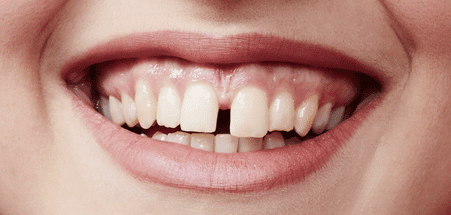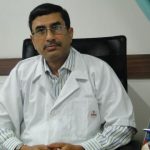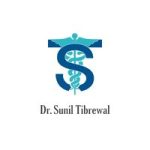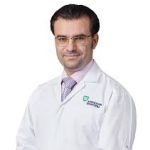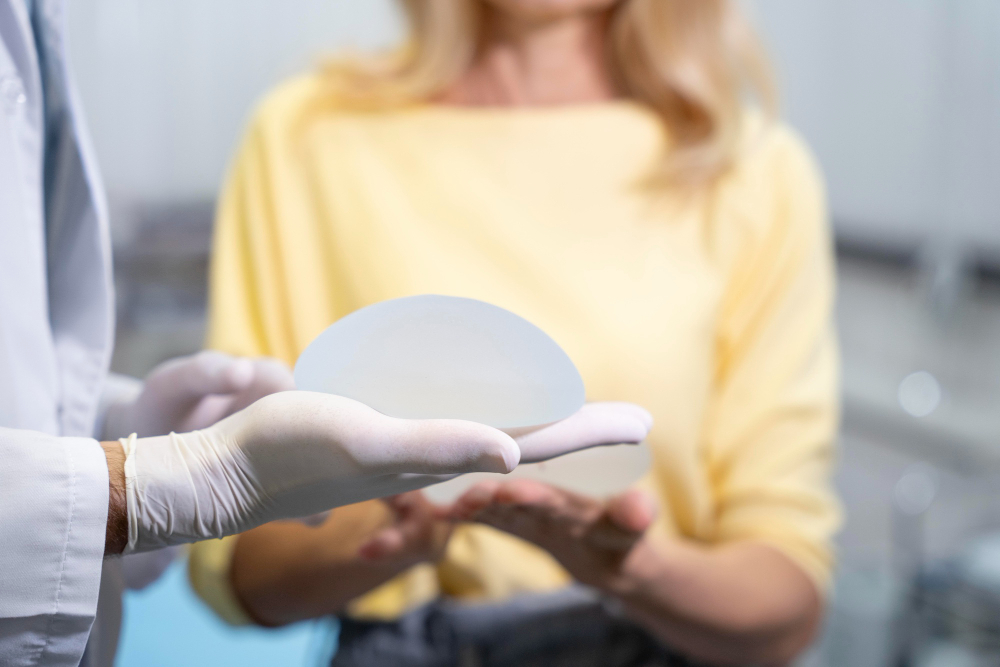
Breast Augmentation in your 20s, 30s, 40s & 50s
Introduction to Breast Augmentation
Breast augmentation surgery is one of the most sought-after cosmetic procedures. Women of all ages experience breast augmentation benefits, like renewed confidence, restored breast tissue, and a curvy figure. There is no right or wrong age to consider undergoing this procedure. However, knowing how breast implants respond to different ages is important. Ultimately, no matter what age you are, choosing to get breast implants is completely up to you, so it’s important to be informed of the different outcomes different ages experience.
Implants In Your 20s
Many young women are unhappy with their breasts due to various reasons. Although waiting until you are over 18 is recommended, as your body is done developing by then. Asymmetrical breasts or small breasts are some causes for young women to want breast implants.
The main benefit of having breast augmentation surgery in your 20s is recovery. Since your body is young and able to heal quickly, the recovery process will be faster and easier.
Some cons of undergoing breast augmentation at a young age have to have future implant replacements, as breast implants do not last forever. It’s common for women to have implant replacement around the ten-year mark, but some women can go longer. Another thing to consider is future pregnancy. If you plan on breastfeeding, your surgeon must use surgical
all techniques that do not interfere with breastfeeding abilities.
It’s also important to remember that undergoing breast augmentation is a permanent decision, so talk to your cosmetic surgeon about your options.
Implants In Your 30s
Choosing to get breast implants in your 30s is the most common and ideal time. By the time you are in your 30s, you typically have a better understanding of exactly what you want and can get ahead of changing breasts due to age. Breasts and aging can affect the density and tissue, causing your breasts to begin to sag.
Knowing your body is important to deciding whether breast augmentation is right for you. If you already have children and do not plan on breastfeeding, this could be an ideal time for breast implants. However, many women have not had children and plan on having them in the future. It’s best to wait until after pregnancy for breast implants, but your surgeon can use certain techniques to preserve breastfeeding abilities.
Breast augmentation is most commonly performed on women in their 30s. Typically, women are in the best financial standing to afford the surgery and are in good health, making recovery much easier than when they are older.
Implants In Your 40s
In your 40s, age starts to have a glaring impact on your breast tissue. Breast density lowers, and fatty tissue begins to weigh the natural height of your breast tissue down. Many women see the benefits of breast augmentation during this time in their lives. Additionally, most women are past the era of childbearing and do not need to worry about the impact of breast implants on pregnancy or breastfeeding.
Many women in their 40s undergo breast augmentation as a part of a mommy makeover procedure. Because they have had children and their bodies have faced permanent changes, a mommy makeover can greatly impact their mental and physical lives. If you want other procedures, such as a tummy tuck or liposuction, adding a breast augmentation can change your entire physique.
Implants In Your 50s
Most women think their 50s are too old to undergo breast augmentation surgery, but that’s not the case. Today, more and more women in their 50s are wanting breast implants. As long as your health is good and you don’t smoke, you can receive breast implants. However, there are more stipulations and recovery effects that you should be aware of.
First, it is recommended that you have a mammogram before undergoing breast augmentation surgery. Because your breast structure changes drastically as you age, a mammogram will give your surgeon a clearer picture of that structure. It also provides insight into any possible complications or risks before the procedure.
Second, most women who want breast implants do so because they’re experiencing changing breasts. It is often recommended to undergo a breast lift along with breast augmentation. When your breasts begin to sag and lose elasticity due to age, implants can worsen the sagging. A breast lift negates this effect, and the two can be performed together.
The final thing that is important for women in their 50s to remember is that the recovery process might be a bit harder and longer. Your body does not bounce back as easily as someone in their 20s, and any underlying health conditions can impact the healing process.
Conclusion
Overall, there is no right age or wrong age to undergo plastic surgery. As long as you are healthy and over 18, your cosmetic surgeon can help guide you through your breast augmentation and give you the best insights to help you achieve your perfect figure.

Exploring the Longevity of Breast Augmentation: When is it Time for Replacement ?
Breast implants are a medical device used to increase breast size and enhance breast shape. Placed during a surgery known as breast augmentation, the implants and the surgery that places them are the most popular and common plastic surgery in the United States with hundreds of thousands of people undergoing breast augmentation every year.
Getting breast implants is not always a purely cosmetic decision for patients. Many patients get breast implants to reconstruct the breasts or address extreme asymmetry. Out of all plastic surgeries, breast augmentation process has one of the highest satisfaction rates. Another common misconception is that breast implants are permanent.
Modern breast implants are designed to be long lasting, but not necessarily permanent. After ten years, the risk of rupture or similar weakening of the breast implant shell goes up. While silicone leaks are largely a thing of the past, patients should still consider replacing their implants at some point after the ten year mark. Though, this is not a requirement. If a patient is not having problems and is still happy, there is not a reason to replace them.
Today’s silicone breast implants—in comparison to older versions—contain a more cohesive silicone gel. This makes them significantly less likely to leak and remain within the shell in the rare event of a rupture.
Different Types of Breast Implants
There are two primary types of breast implants: saline and silicone. Each has unique pros and cons which patients must consider carefully when picking out their breast implants. By far the most popular breast implant option is silicone, but they are not right for everyone. Let’s further examine the pros and cons of saline and silicone breast implants.
Pros of Saline Implants:
● Able to be safely overfilled for maximum breast size
● Filled with sterile saline that poses no risk to the body
● Rupture quickly evident if it occurs
● Require a smaller incision
● Less expensive
Cons of Saline Implants:
● More likely to be visible from under the skin (rippling or wrinkling)
● May hear or feel water sloshing
● Some believe they look and feel less natural than silicone implants
Pros of Silicone Implants:
● Believed to look and feel more natural
● Ability to choose between smooth and textured implants
● Offers shaped implants that mimic the natural shape of the breasts
● Cohesive silicone filling that feels like human fat
● May last longer
● More variety
Cons of Silicone Implants:
● Requires a slightly larger incision to place
● Poses more risk to the body if it ruptures
● Rupture often not immediately detectable
● More expensive
How Long Does Breast Implants Last?
Saline and silicone breast implants have a general lifespan where patients may consider breast implant replacement. In general, saline and silicone breast implants are designed and approved to last more than ten years. Though, after ten years, saline implants have a higher chance of rupturing than silicone breast implants.
If a saline breast implant ruptures, it will deflate which makes the rupture obvious within a day. A silicone implant rupture is harder to detect. It generally requires an MRI to find. Additionally, it is also not an uncommon occurrence for a surgeon to discover ruptured implants during a breast implant removal surgery.
The FDA recommends that patients with breast implants—in particular silicone implants—get MRIs every three years to monitor the integrity of their implants. Patients can also choose to monitor their implants with their doctor.
If a patient discovers that their implant is ruptured, they should contact their plastic surgeon immediately. The ruptured implant will need to be removed. Then, the patient can decide to undergo breast implant replacement or breast implant removal. If only one implant ruptured, patients may only need to correct one breast.
Rupture can occur for various reasons. The most common reason ruptures happen is simply age and wear and tear. Like anything else in the body, the implants may weaken over time. In rarer cases, trauma to the chest, severe capsular contracture, or overfilling/underfilling a saline implant can also cause an implant rupture.
Reasons Why You Need To Replace Or Remove Breast Implants
Breast implants may need to be removed or replaced for various reasons. Of course, a patient can choose to have their breast implants removed at any time for any reason. Sometimes, patients simply outgrow their implants and feel they no longer fit their lifestyle. However, other reasons a patient may seek breast implant replacement or breast implant removal include:
● Rupture: The bursting or an opening in the breast implant. This can cause the filling to leak from the implant. This is rare with modern silicone implants. However, any ruptured implant needs to be removed and/or replaced.
● Capsular Contracture: It is normal for a thin layer of scar tissue to form around the implant. When capsular contracture occurs, the scar tissue becomes thicker and harder. In severe cases, it can cause pain and a misshapen breast. Unless a very mild case, capsular contracture usually warrants breast implant removal.
● Rippling: Rippling—sometimes called wrinkling—is when the implant is visible because it bulges against the skin. While this is not dangerous or worrisome, some patients find it unsightly and choose to place implants under the muscle or pick implants less likely to ripple.
● Shifting: During surgery the plastic surgeon creates a pocket for the breast implant to sit in. Sometimes—for various reasons—the implant may shift out of the pocket or even make the pocket bigger. This can cause the implant to sit incorrectly in the breast. For example, breast implants may sit too far to either side or drop too low.
How Do I Know if My Implants Need to Be Replaced?
Knowing when to seek breast implant replacement is sometimes obvious. For example, if a patient is experiencing pain obviously linked to their implants or a misshapen breast at the wrong stage after surgery, these are likely indications for breast revision surgery. Also, a patient does not necessarily need a reason beyond their own preference. As women grow older and change, they sometimes choose to have their breast implants removed.
Conclusion
Breast implants can have different longevity for each individual patient due to unique factors. Understanding what to expect before choosing to get breast implants allows patients to take steps to extend the longevity of their breast implants and breast augmentation results.
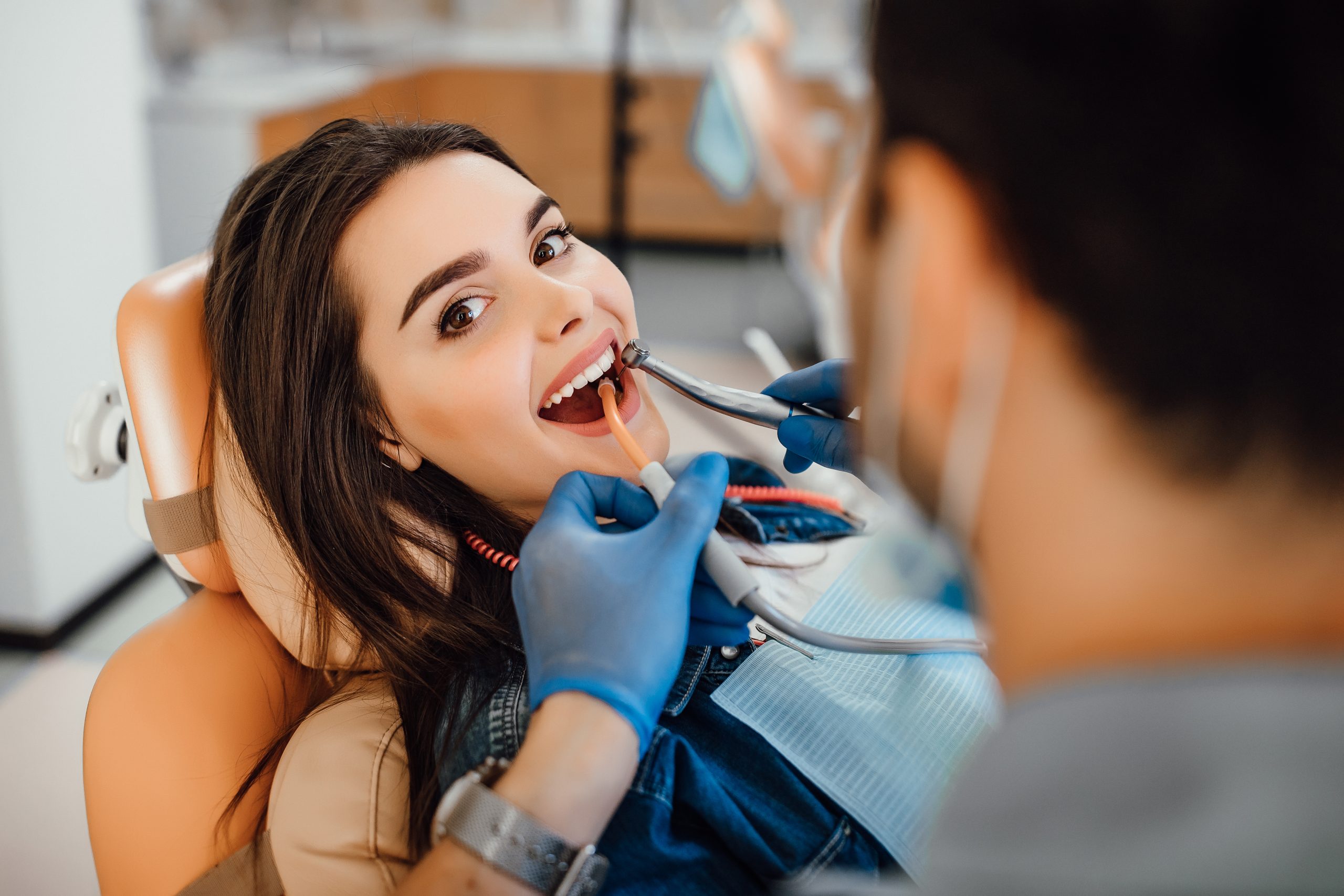
Dental Insurance for Seniors – What You Need to Know
Dental insurance is an important consideration for seniors, as it can help cover the cost of necessary dental care and preventative measures to maintain their oral health. However, many seniors are unsure of what dental insurance is available to them, and how to choose the best option for their needs. In this article, we’ll explore the various types of dental insurance available to seniors, how to maximize your plan’s benefits, and strategies for managing dental insurance costs, For more information, visit this website today.
Key Takeaways:
- Several types of dental insurances are available to seniors, including traditional, discount, and Medicare Advantage plans.
- To maximize the benefits of your dental insurance plan, take advantage of preventive care, such as routine check-ups, cleanings, fluoride treatments, and orthodontic coverage.
- To minimize out-of-pocket expenses, understand the terms and conditions of your plan, compare plan options from different providers, and research the costs of different procedures.
- To choose the right dental insurance provider, consider the availability of your preferred dentist and the quality of the provider’s network, the reputation and financial stability of the insurance company, and the customer service and support they offer.
- Seniors can consider additional options such as dental savings plans, dental discount cards and standalone dental insurance policies.
- It’s important to review your dental insurance options and make sure you have the coverage you need to maintain your oral health.
Understanding Dental Insurance for Seniors
Dental insurance is a type of health insurance that helps cover the cost of necessary dental care, such as routine check-ups, cleanings, and fillings. Several types of dental insurance are available to seniors, including traditional, discount, and Medicare Advantage plans.
Traditional insurance plans typically require a monthly premium and may also have out-of-pocket expenses. These plans often have a network of participating dentists, so it’s important to make sure your preferred dentist is in-network before enrolling in a plan.
On the other hand, discount plans do not require a monthly premium and typically offer discounts on dental procedures rather than full coverage. These plans may also have a network of participating dentists, so it’s important to check the availability of your preferred dentist before enrolling.
Medicare Advantage plans, also known as Medicare Part C, are a type of Medicare plan that includes additional benefits, such as dental coverage. Private insurance companies offer these plans and have specific rules and guidelines. It’s important to understand the terms and conditions of the plan before enrolling, as they may vary from traditional Medicare.
When choosing a dental insurance plan, it’s important to consider your personal needs, budget, and the availability of your preferred dentist. Seniors should also consider coverage options, such as preventive, orthodontic, and emergency dental services.
Maximizing Dental Insurance Benefits for Seniors
Once you’ve chosen a dental insurance plan, it’s important to understand how to take full advantage of your benefits. One of the best ways to maximize your benefits is by taking advantage of preventive care, such as routine check-ups, cleanings, and fluoride treatments. These preventive measures can help detect and prevent dental problems early on, saving money and improving oral health in the long run.
Orthodontic coverage is another important benefit that seniors should consider. Many traditional dental insurance plans include coverage for orthodontic care, such as braces and other orthodontic treatments. This can help seniors save money on these procedures and improve their oral health.
Managing Dental Insurance Costs for Seniors
While dental insurance can help cover the cost of necessary dental care, it’s important to understand how to manage the costs associated with your plan. One of the biggest factors to consider is the premium, which is the monthly cost of your insurance plan. Premiums can vary depending on the plan type, age, and other factors.
Another important factor to consider is out-of-pocket expenses, such as deductibles and co-pays. You are responsible for paying these expenses, even with dental insurance. To minimize out-of-pocket expenses, it’s important to understand the terms and conditions of your plan, such as the types of services covered and the amount of coverage.
Choosing the Right Dental Insurance Provider for Seniors
When choosing a dental insurance provider, it’s important to consider the availability of your preferred dentist and the quality of the provider’s network. Many insurance providers have a network of participating dentists, and it’s important to make sure your preferred dentist is in-network before enrolling in a plan. In addition, research the reputation and financial stability of the insurance company, and consider the customer service and support that they offer.
Another important consideration is the type of plan offered by the provider. As mentioned earlier, different types of dental insurance plans are available, such as traditional, discount, and Medicare Advantage plans. It’s important to understand the terms and conditions of the plan and how it aligns with your personal needs and budget.
Additional Dental Insurance Options for Seniors
In addition to traditional dental insurance plans, there are other options available for seniors to consider. One such option is a dental savings plan, which is a type of discount plan that allows members to save money on dental procedures. Dental providers typically offer these plans and do not require a monthly premium.
Another option is a dental discount card, which offers discounts on dental procedures to members. These cards can be purchased online or through dental providers and do not require a monthly premium.
Lastly, seniors can also consider purchasing a standalone dental insurance policy, a type of insurance plan specifically designed for dental care. These plans are often more affordable than traditional insurance plans and can be purchased through insurance providers or online.
Conclusion
Dental insurance is an important consideration for seniors, as it can help cover the cost of necessary dental care and preventative measures to maintain their oral health. However, many seniors are unsure of what dental insurance is available to them, and how to choose the best option for their needs. By understanding the different types of dental insurance available, maximizing your plan’s benefits, and managing the costs associated with dental insurance, seniors can make informed decisions about their dental care. Additionally, seniors can consider additional options such as dental savings plans, dental discount cards and standalone dental insurance policies. It’s important to review your dental insurance options and make sure you have the coverage you need to maintain your oral health.
FAQ:
What types of dental insurance are available for seniors?
Several types of dental insurance are available to seniors, including traditional, discount, and Medicare Advantage plans. Traditional insurance plans typically require a monthly premium and may also have out-of-pocket expenses. On the other hand, discount plans do not require a monthly premium and typically offer discounts on dental procedures. Medicare Advantage plans, also known as Medicare Part C, are a type of Medicare plan that includes additional benefits, such as dental coverage.
How can I maximize the benefits of my dental insurance plan?
One of the best ways to maximize your benefits is by taking advantage of preventive care, such as routine check-ups, cleanings, and fluoride treatments. These preventive measures can help detect and prevent dental problems early on, saving money and improving oral health in the long run. Additionally, orthodontic coverage is another important benefit that seniors should consider, as it can help seniors save money on orthodontic procedures and improve their oral health.
How can I minimize my out-of-pocket expenses for dental insurance?
To minimize out-of-pocket expenses, it’s important to understand the terms and conditions of your plan, such as the types of services covered and the amount of coverage. It’s also helpful to compare plan options from different providers, and research the costs of different procedures. Additionally, some providers may offer discounts for certain services, so it’s worth asking about this as well.
How do I choose the right dental insurance provider for me?
When choosing a dental insurance provider, it’s important to consider the availability of your preferred dentist and the quality of the provider’s network. Research the reputation and financial stability of the insurance company, and consider the customer service and support they offer. Additionally, make sure you understand the terms and conditions of the plan offered by the provider and how it aligns with your personal needs and budget.
Are there additional options available for seniors besides traditional dental insurance plans?
Yes, there are additional options available such as dental savings plans, dental discount cards and standalone dental insurance policies. Dental savings plans are offered by dental providers and do not require a monthly premium, while dental discount cards can be purchased online or through dental providers. Standalone dental insurance policies are a type of insurance plan specifically designed for dental care and can be purchased through insurance providers or online.

16 Best Food that is Rich in Vitamin C
Vitamin C is a water-soluble vitamin, which is neither created nor stored so, we need to take it insufficient amount regularly. Vitamin C is antioxidant which also helps us to prevent infection, virus, and help to improve our immunity. Rich in Vitamin C plays a important role in developing our immune system better every day in our life
Vitamin C is an essential nutrient involved in the repair of tissue and the enzymatic production of specific neurotransmitters Its deficiency causes gum bleeding and can frighten the immune system.
Here is some food that is Rich in Vitamin C
Yellow bell pepper, broccoli, guavas, berries, kiwi fruit, oranges, lemon, black currant, Brussels sprouts, tomatoes, cabbage, peas, melon, papaya, pineapple, turnip.
1.Yellow bell peppers
In an amount of 100 gm of yellow bell pepper 180 to 185 mg vitamin C was found. Every person should add this food to his/her diet for taking vitamin C insufficient amount.
2.Broccoli
In an amount of 100 gm of broccoli 89 gm of vitamin c was found. Broccoli is a good option to consume vitamin c for our daily life. As a fact, we need to know that boiling broccoli can destroy 50 percent of vitamin c. So, we need to use broccoli without boiling it for taking a sufficient amount of vitamin c.
3.Guavas
In an amount of 100 gm of guava, there is 230 mg of vitamin C was found. 230 mg of vitamin c is more we use in a day. So, guavas are the best option to fulfill our vitamin c need in daily life. In guavas, vitamin C is also responsible for its nice taste.
4.Berries
In berries there is also a good amount of vitamin c was found. Not only strawberries but also blueberries, raspberry having vitamin c. About 95 mg of the vitamin c was found in a cup of sliced strawberries. And strawberries are the tastiest way to consume vitamin c for daily life.
5.Kiwi fruit
Kiwi is not only rich in Vitamin k but also rich in Vitamin C. So, we had to add it to our regular duet to complete our requirement of vitamin c. Kiwi has almost 95 mg of vitamin c in 100 gm. So, it is a nice option for improving our Immune system
6.Oranges
One of the most popular foods for recover the losing amount of vitamin c. As we know orange is juicy and fibrous food, so, it works as an antioxidant and as well as gives fiber to strengthen us. Easy to find, easy to extract juice, and cheap.
7.Lemon
It is easy to find it in summer but hard or rarely to find in another season. Lemon has an exceptionally high amount of vitamin c. Regular use in summer can make you away from the clinic and doctor. Use lemon juice with a little amount of salt is also helps to improve your Immune system.
8.Black currant
Black currant carries a very high amount of vitamin c. Black currant carries about four Times of vitamin c than oranges, and double to blueberries. Body use vitamin c for forming collagen and for protein metabolism, which helps our body fights against skin disease and viral infection.
9.Brussels sprouts
According to their taste, this is not loved by children to eat, but having minerals and fibers in a huge amount. We can take cooked Brussels sprouts, as it provides 50mg of vitamin c.
10.Tomatoes
Tomato is a common vegetable that can be found in every house. As per the studies around 35 percent of vitamin c is found in tomatoes. But eating too many tomatoes can also cause heartburn and gastric problems.
11.Cabbage
Cabbage has enough amount of vitamin c to fulfill your daily need of vitamin c. We can take it in salads to fulfill our vitamin c need.
12.Peas
And we need to add peas to our diet because it has also other vitamins and minerals except Vitamin C. Boiling of peas can destroy vitamin C, because heat and water have an inverse relation with vitamin c.
13.Melon
If we talking about the melon family then both musk and watermelon are rich in vitamin c. So, in summer it is one of the best options to improve our Immune by vitamin C.
14.Pineapple
A cup of pineapple provides you about 25g of vitamin c. Pine helps our Immune system, eye, and heart strengthen.
15.Papaya
In a full size of papaya, it contains about two to three times of vitamin c as per the daily need. So, papaya is also the better option for increasing vitamin c in your body.
16.Turnip
Turnip is high in vitamin c, calcium, amino acids, folate, copper, potassium, etc. Iris the best food recommend to take in a salad every day.
We hope, above mention details help you to balance the diet. And add the amount of vitamin c as you need. Cause of the word limit we can’t write all the food rich in vitamin c. So, such food has Citrus in nature is rich in vitamin c. Vitamin C is essential for the growth, development, and repair of all body tissues. It’s involved in many body functions, including the formation of collagen, absorption of iron, the proper functioning of the immune system, and the maintenance of cartilage, bones, and teeth.
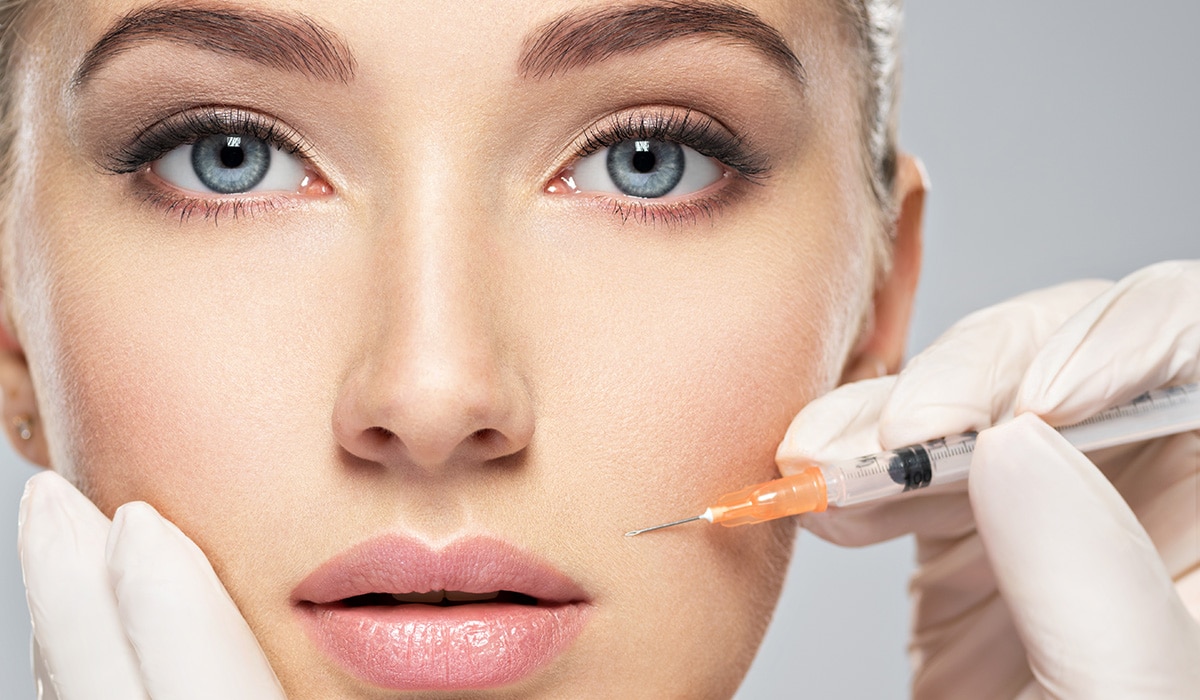
Top 10 Dermatologist in Chennai
The skin is the main part that makes up the human body. If that’s not enough to take care of her, then what do you do? Dermatologist focuses on the study, research, diagnosis and management of skin, scalp, hair and nail health. Know the signs of skin cancer and take precautions to protect your skin. Signs of skin cancer can be moles that change appearance, have an irregular shape, or are different in color. Look for abnormal-looking spots on the skin, unhealing wounds, and color spread from the edges of the spots to the surrounding skin. Avoid using sunscreen and use sunscreen in the sun. Skin must be taken care regularly.
Importance of Dermatologist :
Dermatology, Skin Disease Research-The largest organ in the human body that is misunderstood and underestimated. Physicians in other disciplines also consider it “easy” or trivial, but skin diseases are common and can be fatal, with a significant financial and psychological burden on the patient. It is important because it has sex. Skin diseases are often serious and can even be fatal. Although the threat posed by malignant melanoma is well known, non-melanoma skin cancer also causes and contributes to significant morbidity and mortality. In addition, common skin conditions such as psoriasis are associated with more serious conditions such as heart disease and diabetes.
1. Dr Ashiq Mohamed-MBBS, MD Dermatology Venerology & Leprosy:
Dr Ashiq Mohamed (Registration-77816) is one of the most popular names for Apollo Cosmetic Clinics MRC Nagar in Chennai, India. He has been a dermatologist and beautician for 6 years and has been with Apollo Hospital since his last job. He received his MBBS in 2006 and his PhD in Medicine from Sri Rama Chandra Medical College in 2011. After passing it, he began working as an assistant professor in the Department of Dermatology at the University of Sri Rama Chandra. He has extensive experience in the field of dermatology and there are many organizations with doctors. NS. Mohammed was associated. Since 2012, he has been appointed Director of Advanced Dermatology Center, Dermatology and Laser Clinic, Advisory Dermatologist at Chennai Meenakshi Multidisciplinary Hospital, and Visiting Consultant at Carvery Multidisciplinary Hospital. Dr Ashik has received many prestigious awards for his outstanding practices, research, and publications. He also presented free lectures and posters and attended many conferences in Chennai and other Indian states.
2. Dr Col Rajagopal A-MBBS; MD DV & D:
Dr Col Rajagopal A (reg: 15124-TN Medical Council) is one of the most experienced and best dermatologists on Greams Road in Chennai, India. He has 45 years of great experience in the field of dermatology and has been with Apollo Hospital since his last position. There are numerous successful cases recorded by Apollo Hospital’s medical history and published by Dr Col Rajagopal A. Processed and processed. Dermatology, venereology, leprosy from Banaras Hindu University in 1981), DVD from Puna University in 1974. He is an active and active member of the TMC (Tamil Nadu Medical Council). There are cases like skin boosters and fillers, breast enlargement/mastectomy, body sculpting and nasal fillers, tummy tacks, these are mainly used by Dr Treated by Captain Rajagopal.
3. Dr. Jayaraman AM-M.D. (Dermatology) D.D.:
Dr Jayaraman AM (Reg: 27835) is a well-known dermatologist based in Mylapore, Chennai, who has been practicing in this area for 33 years. If you are looking for an experienced dermatologist for yourself or your loved one, you can book an appointment with this doctor at the Apollo Specialty Cancer Hospital in Teynampet, Chennai. He is also a dermatology and cosmetics clinic in Manapakkam & Mylapore, Chennai, A.N. India. He received his MBBS and PhD in Dermatology from the University of Madras in Chennai in 1976 and 1983. In 1981, he received a dermatology degree from the DNB Board of Directors in New Delhi, India. Dr Jayaraaman AM has 30 years of experience in dermatology and is also a professor of dermatology at Stanley Medical College. He first established the Department of Dermatology and Cosmetics at Stanley University in Tamil Nadu and was honoured as the father of dermatology surgery in Chennai.
4. Dr Priya K-MBBS; MD (Dermatology):
Dr Priya K (Reg: 65647) is one of the most popular and successful dermatologists at Apollo Hospitals Greams Road in Chennai. She has 15 years of work experience and has been with Apollo Hospital since her last mission. Also has experience in treating hair and nail diseases, skin and various cosmetic treatments, diode lasers, powerful pulsed light, fractional lasers, long pulse NdYag lasers and carbon dioxide lasers. She won a silver medal in the first-class biochemistry otolaryngology of all other first-class subjects in MD. She is an expert member of many dermatological societies, including the Indian Dermatologists Association, Venereologists and Leprologists. There are many serious dermatological cases in the history of Apollo Hospital reported by Dr Priya K that can be treated and cured normally. You can easily check all the feedback and comments about their work on the internet.
5. Dr Murlidhar Rajagopalan-MD (DERM); DIP: clinical immunology:
Dr Murlidhar Rajagopalan (Registration: 41122) is one of Chennai’s most experienced dermatologists and is currently practising at Greens Road, Chennai. I am. He has 30 years of work experience as a dermatologist at various hospitals in Chennai. Since his last mission, he has been connected to Apollo Hospital on Greens Road, Chennai. There are many studies and publications on behalf of the doctor. M. Rajago Paran is both domestically and internationally. He received MBBS and MD in Dermatology from the University of Madras in Chennai, India in 1986 and 1981. With many years of professional experience, he is one of Chennai’s most popular dermatologists, treating and successfully treating many critical dermatological cases.
6. Dr Jyothsna – The Dermatologist :
Dr Jyothsna is a dermatologist, cosmetologist and cosmetologist living in Saligramam, Chennai and has eight years of experience in these areas. And practices at Skin & Laser Clinic, Curves Cosmetic Surgery, Saligramam, Chennai. She completed MBBS at the Langalaya Medical College in Kakinada in 2007 and DVD at the Sri Venkateswara Institute of Medical Sciences (SVIMS) in Tilpati in 2011. She is an Indian dermatologist, venereologist and member of the Association of Leprologists (IADVL). Services provided by doctors include hair ailments, body contours, glutathione whitening, dermatitis treatment, and hair care.
7. Dr B. Sindhu Raaghavi (Dermatologist) :
Dr B. Sindhu Raaghavi is a Velachery-based dermatologist, aesthetic dermatologist and hair scholar in Chennai with 11 years of experience in these areas. Dr B. Sindhu Raaghavi is practising at Carves Skin Clinic in Velachery, Chennai. She graduated from Meenakshi Medical College Hospital and Institute at MBBS in 2010 and MD Dermatology, venereology and leprosy at SBMC Hospital in 2014. She is a member of the Indian Dermatologist, Revenereologist and Hansen Dermatologist Association (IADVL). Services provided by doctors include hair loss treatment, acne/acne treatment, stretch mark treatment, skin polish, and anti-aging treatment.
8. Dr Aarthi.L:
Dr Aarthi. L is a dermatologist and cosmetologist living in Royapuram, Chennai and has 12 years of experience in these areas. Dr Aarthi. L practices at the aarthi Skin Care Clinic and Laser Center in Royapuram, Chennai, and at the Aarthi Skin Care Clinic and Laser Center in Adyar, Chennai. She completed MBBS from Sri Rama Chandra Medical College and Institute in 2002 and MD Dermatology from Sri Rama Chandra Medical University and Institute in 2005. Her areas of interest are platelet-rich plasma, hair loss and acne treatment. Her treatment motives are safe and she does not use triple combinations of steroids or hydroquinone.
9. Dr. Senthil Sivaprakasam:
Dr Senthil Sivaprakasam is a Kilpauk-based dermatologist, cosmetologist and cosmetologist with 16 years of experience in these areas. He practices at Radiance Skin and Hair Care in Kilpauk, Chennai. Also completed MBBS at Sri Ramachandra University in Chennai in 2005 and MD Dermatology at Meenakshi University in 2013. He is an Indian dermatologist, venereologist, and member of the Association of Leprologists (IADVL) and the American Academy of Cosmetology. Services provided by doctors include stripping, hair weaving and bonding, forehead lifts, rush treatments, and hair transplant surgery.
10. Dr M Jayaraman:
Dr M Jayaraman is a Mylapore-based dermatologist in Chennai with 45 years of experience in this field. He is practising at A’s N Skin and Cosmetic Clinic in Mylapore, Chennai, and Apollo Specialty Cancer Hospital in Teynampet, Chennai. Dermatology and cosmetics clinic in Manapakkam, Chennai. He received an MBBS from the University of Madras in Chennai, India in 1976, an MD in Dermatology from the University of Madras in Chennai, India in 1983, and a Bachelor of Dermatology from the DNB Board of Directors in New Delhi in 1983. bottom. He is a member of the Tamil Nadu Medical Council and the Indian Dermatologist, Revenereologist, and Reprologist Association (IADVL). Services provided by doctors include laser hair removal on the face, electrocautery of warts, vitiligo and cryotherapy skin grafts.
Bottom Line:
Dermatologists don’t just do cosmetic surgery. They mainly deal with skin conditions such as psoriasis, allergic and endogenous eczema, lupus, acne, and hair and nail conditions. They also diagnose skin cancer, and some specialize in surgical removal of difficult skin cancer.

6 Food Nutrient to Supercharge your Immune System
A body system that protects the body from viruses, bacteria, parasites, and other harmful creatures, known as Immune System. But in that time people are not as much aware of their immunity strength as they have to be. Even people don’t know which nutrients and ingredients he uses for the betterment of their immune system. In this article, we discuss the six topmost Nutrients which help you to improve your immunity and strengthen your Immune system. Nutrient in Food help our immune system to generate more and more immune cells and they work as antioxidants and protect healthy cells, produce antibodies in our body, transfer signals from one nervous system to another.
Epidemiology established that such person who is not well nourished, those people get affected by bacteria, viral and other infection rapidly than to the well-nourished person. So, It is essential to all to nourish our body to be fit and fine,
Below you find some essential nutrient to Supercharge our Immune system.
VITAMIN C:
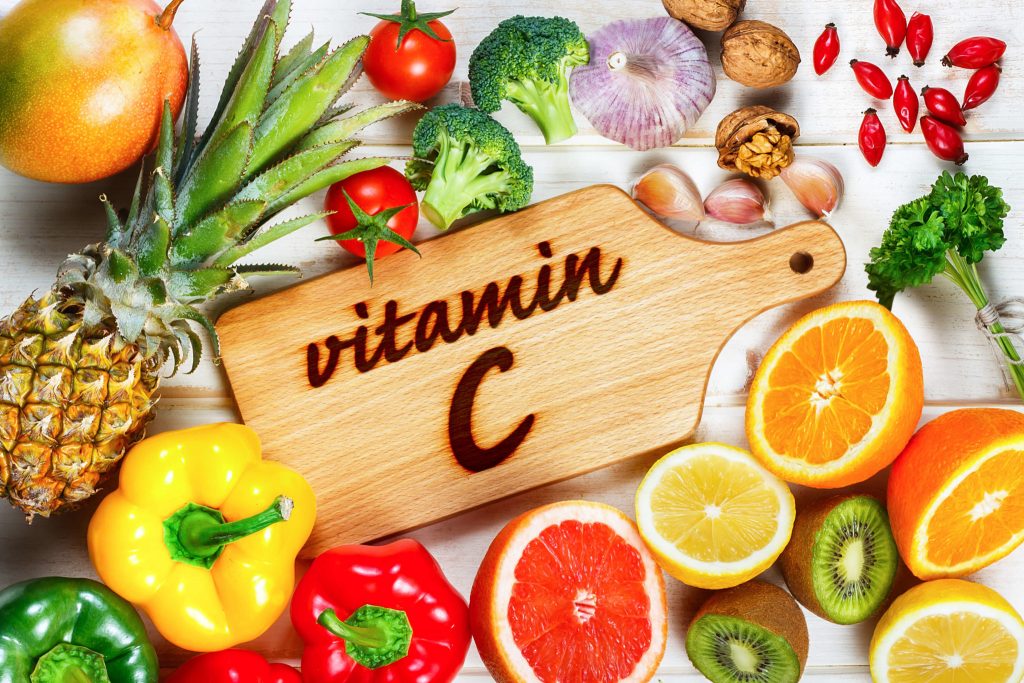
It is the topmost nutrient that helps us to Supercharge our Immune system. In another case, if you have lack Vitamin C you feel more prone to getting sick. Vitamin C works as a potent antioxidant and also a cofactor for a family of biosynthetic, gene regulatory enzymes. Vitamin C supports the immune defense system by support in many cellular functions in both types of immune systems.
Here are some of the fruits which rich in Vitamin C are orange, lemon, grapefruit, kale, spinach, strawberry, bell peppers, and broccoli.
The studies and observations show that lack of Vitamin C shows poor immunity. And its deficiency causes a high risk of virals and infection ( pneumonia ).
Because of our can’t store or create vitamin c so, everyone needed to take it. One of the interesting thing about the Vitamin C is that it is present in most things what we daily take so, need to take supplements for Vitamin C but need to check to take insufficient amount.
Vitamin B6 :

Our body needs Vitamin B6 to absorb vitamin B12 and also to make red blood cells (RBC) of the immune system. Vitamin B 6 helps to make neurotransmitters like serotonin chemical which carry the signal in our nervous system from one to another.
The deficiency of Vitamin B6 causes disturbance in our Immune system, it can easily understand this, deficiency inhibits the production rate of antibodies in our body and also reduces the production of WBC ( white blood cells ).
As we know the biochemical reactions must perform in our Immune system. Vitamin B6 – rich in food cold-water fish, chicken, and also green vegetables, it is the main ingredient of hummus
Food Contains Vitamin E is Nutrient :
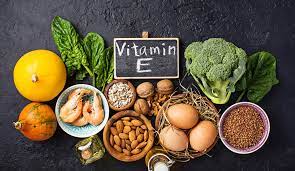
As we know vitamin E is also a good antioxidant that helps the body to fight against viruses, virals, and infectious diseases. It prevents lipid peroxidation and associates cell membrane damage. Vitamin E helps in the maintenance of integrity part of the cell membrane, maintain signal transduction and also produce many of the protein.
Lack of Vitamin E may pause or slow the manufacturing process of immune cells.
Vitamin E directly Supercharge our Immune system we can take it by regular use of such ingredients as nuts, seeds, and spinach, etc.
ZINC :

Zinc is an essential nutrient for us in growth as well as in the immune system. Zinc plays a vital role in our Immune system such as a signal transporter in our CNS(center nervous system), Zn is also essential for monocytes/macrophages and anti-bacterial cells. Zn also shows the antioxidant properties.
Lack of Zn cause many problems related to the immune system such as cell-mediated immune dysfunctions, and abnormal neurosensory changes
Zn produces naturally and found in beans, fishes, meat, dark chocolate, legumes, etc.
CAROTENOIDS :

Carotenoids are the pigment found in plants, algae, and bacteria. Carotenoids are the reason that’s why plants show different colors. There 600 different types of carotenoids founded yet. They also act as an antioxidant for the human body, so, they also boost our Immune system
Some carotenoids are known to exert multiple protective effects in the function of the cellular immune system. It also minimizes the UV rays effect by sunlight.
Food nutrient that is rich in carotenoids is apricot, broccoli, squash, sweet potato, peaches, etc.
FATTY ACIDS :

In the Immune system, fatty acids have their vital role, and they also boost up our Immune system. Fatty acids work as a source of energy, signal transduction, as a structural component of cell membranes. Omega-3 fatty acids can also boost your memory.The cause of fatty acid shows the property of anti-inflammation so, it directly helps to boost our Immune system.
Lack of fatty acids causes the inhibition of mediator immune cells. Food rich in fatty acids is fish, seafood ( tuna, salmon, herring), nuts, seed( flaxseed, chia seed, walnut), and plant oil.
Top 10 Best Dental hospitals in Chennai
Your teeth are an integral part of your body. If you lose it for some reason, you will not be able to play it. Therefore, you must take good care of it. Regular visits to the dentist are required to maintain optimal oral health. Early detection and timely treatment of many oral health problems, from tooth decay to oral cancer, can be treated by the skilled hands of a dentist. Poor tooth care can lead to a variety of dental illnesses. Prevention of most dental illnesses can be achieved by observing oral hygiene. Still, you are very likely to suffer from at least one of the tooth conditions during your life.
Importance of dental health:
Good oral/dental health means overall health. Dental problems such as tooth decay and periodontal disease can affect your ability to eat and talk, causing pain and bad breath. And what many may not know is that poor dental health can have serious adverse effects on areas outside the mouth, such as chronic inflammation such as heart, diabetes, pregnancy, and arthritis. about it. Some studies suggest that when periodontal disease occurs, bacteria can enter the heart and cause heart disease, arterial blockage, or stroke. Gingival infections such as periodontal disease are associated with preterm birth and low birth weight in pregnant women. Diabetes reduces the body’s resistance to infections and makes the gums more sensitive to infections that can adversely affect blood sugar levels. And painful mouth ulcers are common in HIV patients.
Importance of regular dental visits:
Dental appointments should only be made if there is a problem that needs to be addressed. Prevention is always better than regimen, and there are many other reasons why regular visits to the dentist’s office are important. This is one of the most important things a dentist does every time he gets an examination. The dentist tests for signs of oral and head and neck cancer. To do this, they check for lumps on your head and neck. Also, look for red or white spots in the mouth. Normally, these checks do not find anything unusual, but they can save lives.
1. Rajan Dental:
Visit Rajan Dental Clinic in Chennai, one of the top 80 dental clinics in the world. With a GCR score of 4.2 / 5, it is one of the top dental clinics in Chennai, India. 100.0% of the 175 patients were satisfied with the treatment at this dental office. Rajan Dental’s doctors specialize in implants, dentistry, oral and maxillofacial surgery, endodontics, and orthodontics. Rajan Dental’s clinical staff includes implant science, dental surgery, oral and maxillofacial surgery, general dentistry (dental assistant), aesthetic dentistry, orthodontics, periodontal disease, endodontics, oral cavity, maxillofacial and facial radiation. See More..

2. Acharya Dental:
Acharya Dental was founded by Dr. in 1974. Vijayalakshmi Acharya was founded. Located in the heart of Nungambakkam’s 4,000-square-meter area, Acharya Dental offers 16 well-equipped dental practices in a sparkling, clean, comfortable, and hygienic environment. A team of dedicated professionals and general dentists welcomes patients with the ideal blend of Western technology and Eastern skills. See More..

3. Gold Dental Hospital:
GOLD Dental Hospital is India’s fastest growing dental chain. Its branch spans Chennai and Tamil Nadu, the cultural centers of India. Gold Dental Hospital was founded by two successful doctors, PhD. SUGUMAR and Dr PREM ALEX LAWRENCE were founded to provide international quality dental care to all. Since then, there has been no turning back and there are now more than 50 experienced dentists providing the highest quality treatments. See More..
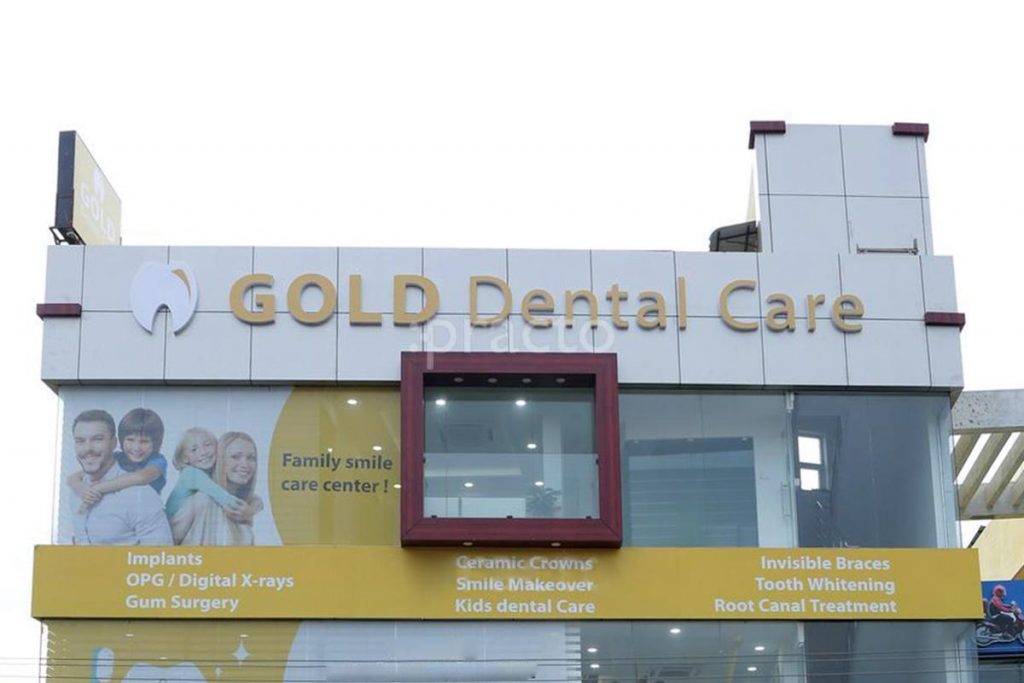
4. Balaji Dental and Craniofacial Hospital:
Balaji Dental & Craniofacial Hospital is a prestigious multidisciplinary dental and surgical care center. With state-of-the-art equipment and state-of-the-art technology, we provide state-of-the-art treatments for craniofacial and skull deformities, facial defects, facial and jawbone fractures, and tooth and maxillofacial disorders. We are an ISO 9001: 2015 accredited dental clinic, providing first-class oral care. See More..
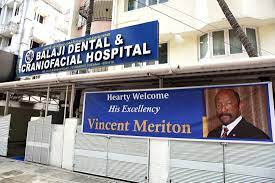
5. Implantree International Dental Hospital:
Visit the Implantree International Dental Hospital in Chennai, one of the 160 best dental clinics in the world. With a GCR score of 3.9 / 5, it is one of the top dental clinics in Chennai, India. 100.0% of the 5 patients were satisfied with the treatment at this dental office. Physicians at Implantree International Dental Hospital specialize in aesthetic dentistry and aesthetic dentistry, aesthetic laser treatment, implant science, aesthetic dentistry, and laser dentistry. The clinical staff at Implantree International Dental Hospital includes many specialists in various departments such as aesthetic dentistry, aesthetic dentistry, See More..
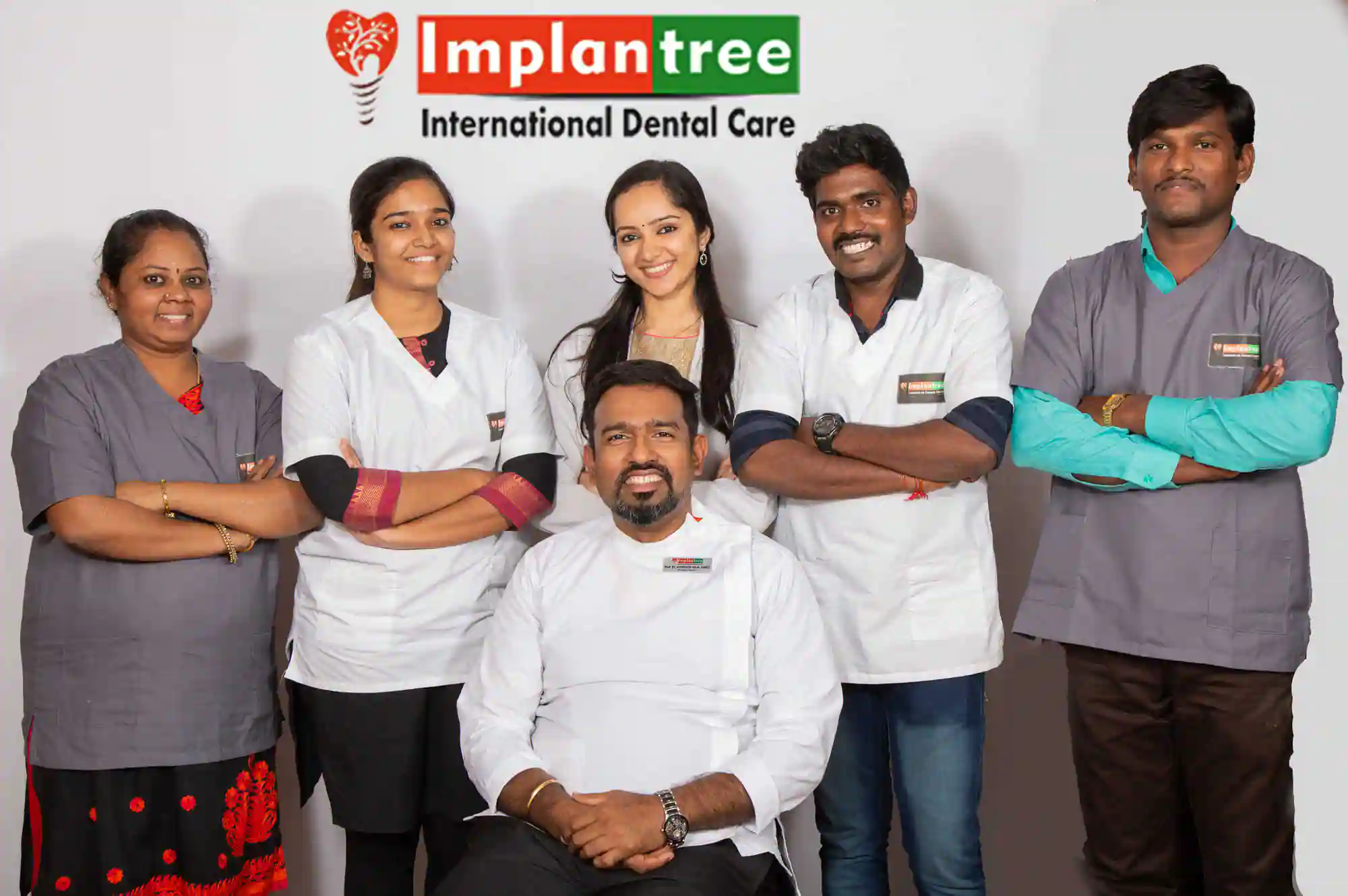
6. Say Cheese Dental Care:
Outstanding standards in personalized dental care enable us to provide the highest quality dental services for our patients. We offer a comprehensive treatment plan and use restorative and aesthetic dentistry to achieve optimal dentistry. In the event of a dental emergency, we will do our best to see and treat you as soon as possible. Say Cheese Dental Care’s clinical staff includes many specialists in various departments such as endodontics, See More..
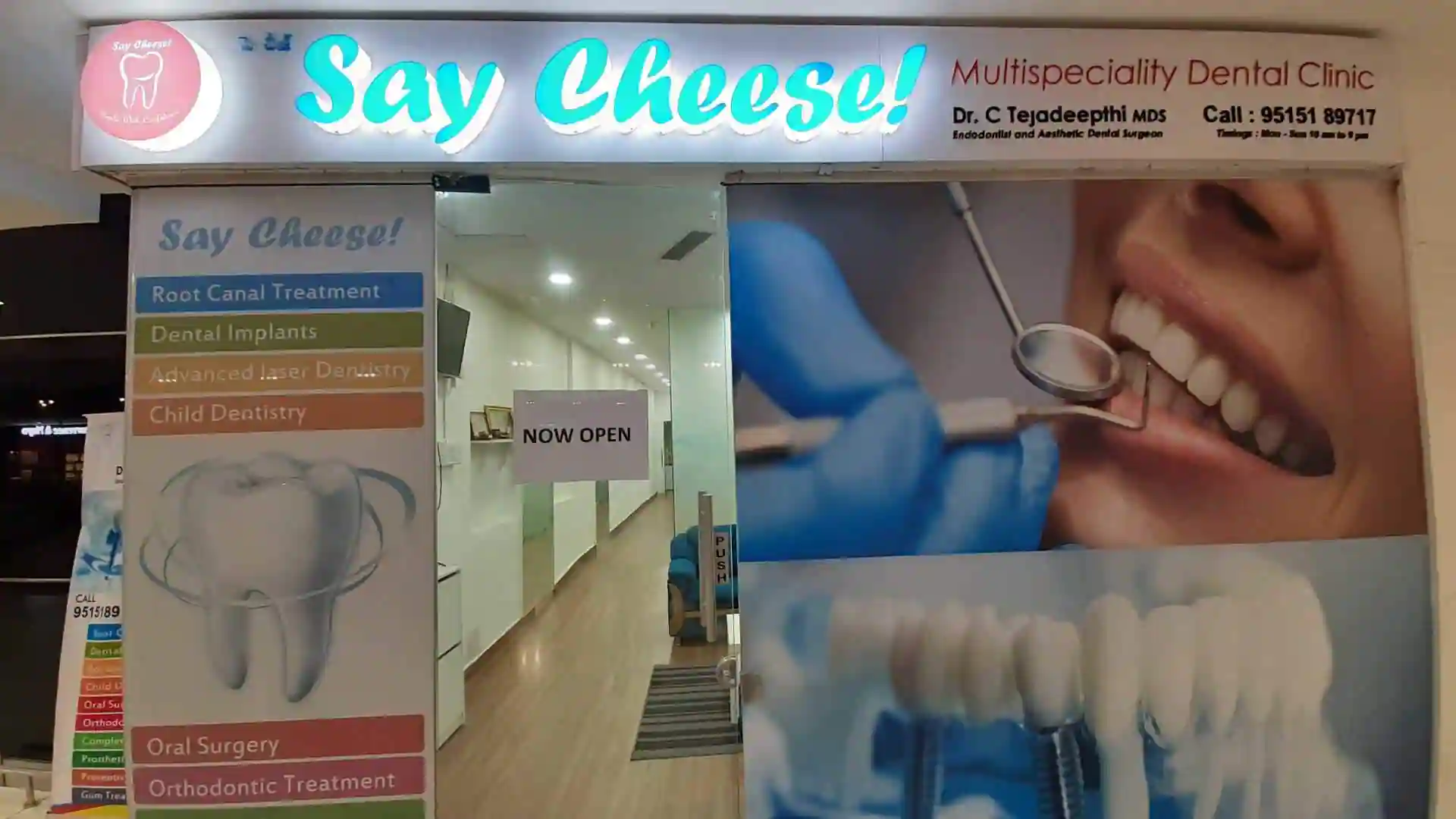
7.Sparks dental clinic:
A major specialized dental clinic in Chennai dedicated to the needs of South Indian dental surgery. Sparks Dental Center was opened in 2007. Since its inception, Sparks has pioneered expertise and facilities in maxillofacial surgery and aesthetic dentistry. Our mission is to provide the best dental care. See More..
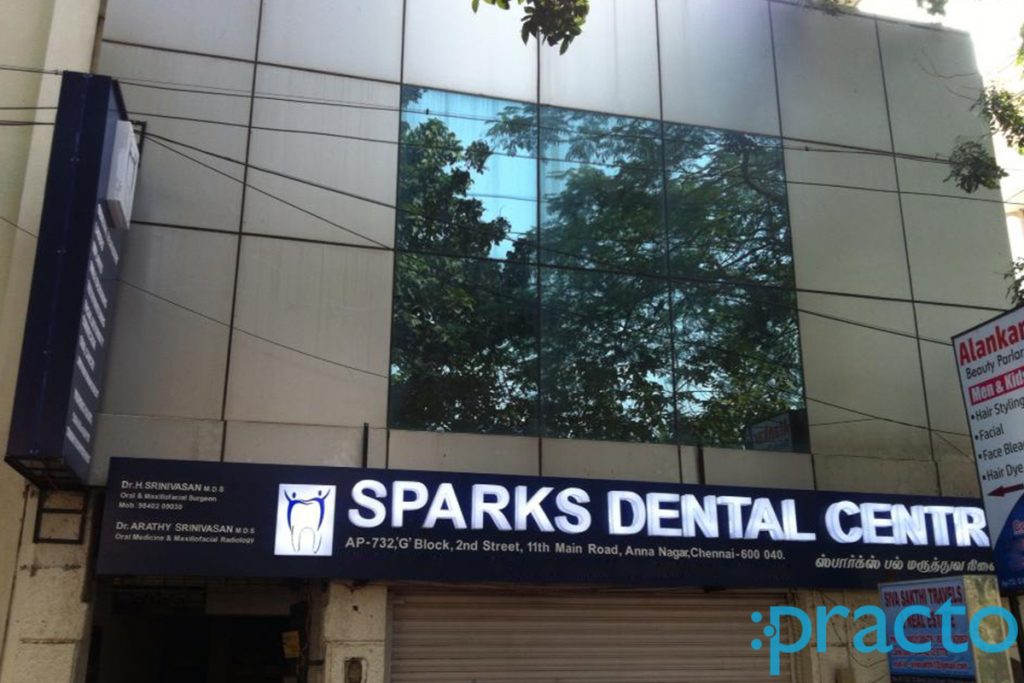
8. Yours Dentally:
Yours Dental is a professional multi-specialist dental centre in the heart of Chennai, easily accessible to men and women of all ages. The clinic is a passionate initiative by two like-minded dentists whose dream is to provide preventive, interception, and orthodontic procedures under one roof, quiet and technologically advanced hygiene. Was to build a typical dental centre. Yours Dentally’ s clinical staff includes many specialists in various departments such as laser dentistry, restoration dentistry, See More..

9. Jay’s dental care:
Jays Dental Care is an international clinic with over 20 years of excellence, the largest NABH accredited dental clinic in India and holds several additional certificates. Specialization in endodontics, laser cavity detection, implants, laser dentistry, maxillofacial surgery, orthodontics, painless dentistry, pediatric dentistry, periodontal disease, prosthodontics (crown & bridge), tooth whitening related to modern facilities The field makes J’s Dental Care a place for your treatment. This medical facility participates in the GCR membership program. As a GCR member, the clinic demonstrates its commitment to implementing best practices and transparency related to international standards. See More..
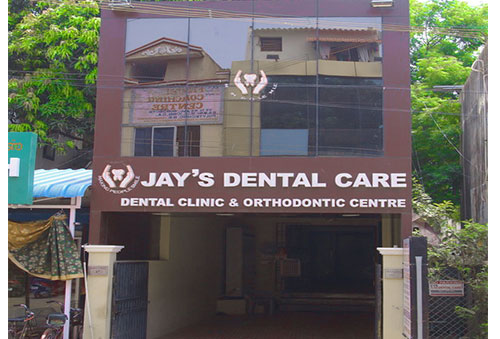
10. Just smile dental specialties:
Visit Just Smile Dental Specialties Clinic, one of the 50 best dental clinics in India. With a GCR score of 3.5 / 5, it is one of the top dental clinics in Chennai, India. 100.0% of 41 patients were satisfied with the treatment at this dental office. Doctors at Just Smile Dental Specialties specialize in orthodontic and Invisalign Clear Braces procedures. The staff at the Just Smile Dental Specialties Clinic includes many specialists from various departments such as Orthodontics and Invisalign Clear Bracelets. See More..
How to take care of teeth:
Healthy teeth need to be taken care of for the rest of their lives. Even if you are told that you have beautiful teeth, it is important to take care of them and take the right steps every day to prevent problems. This includes purchasing the right oral care products and paying attention to your daily habits. If you experience pain, bleeding gums, swelling inside or outside the mouth, tenderness, blisters, or ulcers that do not heal, or noticeable changes in the colour or texture of the soft tissue, you should see a dentist. All of these can indicate serious or potentially serious medical conditions such as oral cancer or chronic periodontal disease. It’s no secret that the general recommendation is to brush at least twice a day. Still, many of us neglect to brush our teeth at night.
Outlook:
It is important to brush with a fluoride toothpaste at night and at least once more during the day. Eating and drinking sugar and acidic foods naturally weaken the enamel of your teeth. Brushing directly can result in small particles of enamel being brushed. It’s best to brush your teeth an hour after eating. It is especially important to brush before bedtime. This is because saliva, the cleansing system of the mouth itself, slows down at night, increasing the risk of tooth decay.
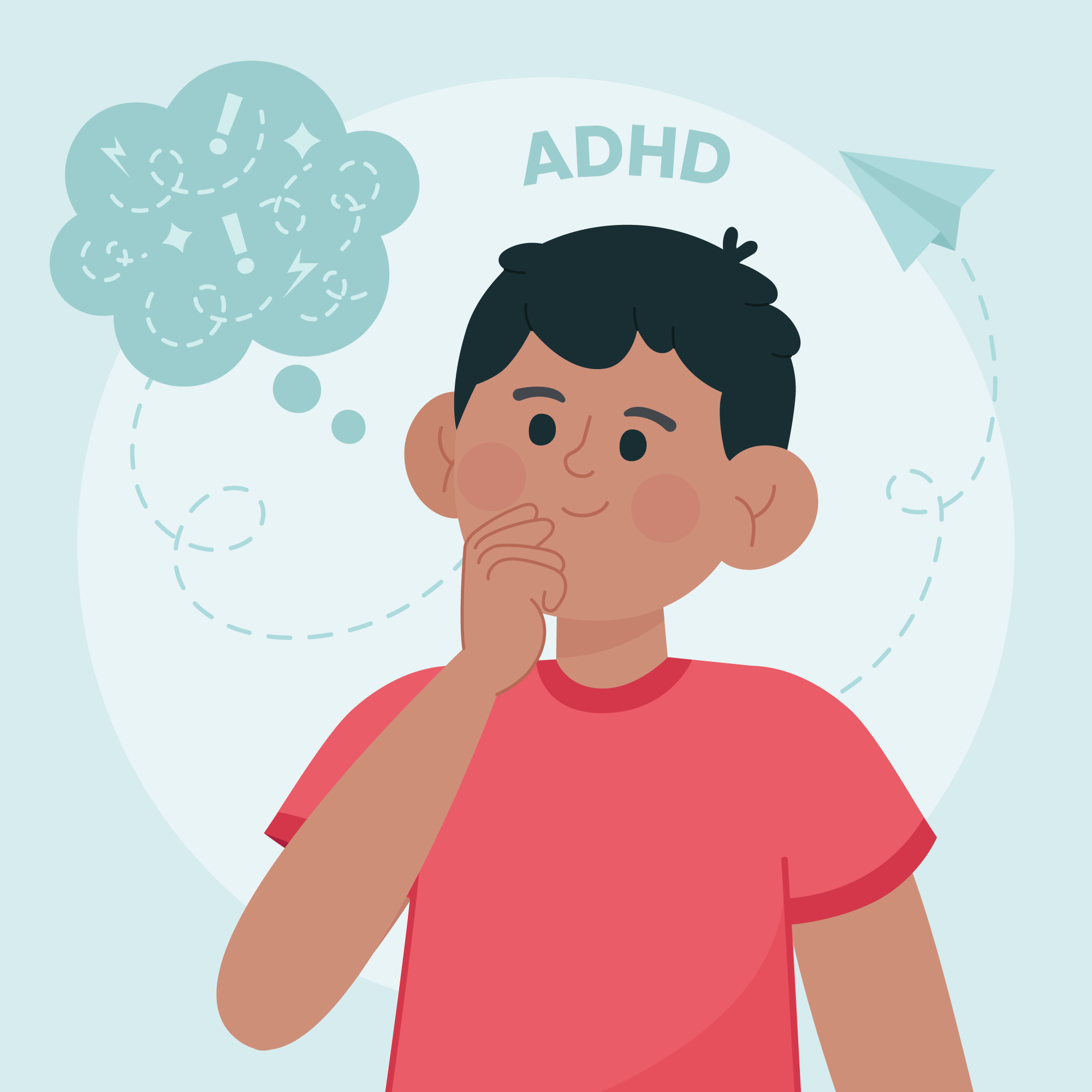
Living As An Adult With ADHD
The medical sector is one that changes quickly. Many long-held notions regarding health care
have been revealed to be false. According to one of these perspectives, attention deficit
hyperactivity disorder shouldn’t be considered a condition that affects adults and teenagers
(ADHD).
Since this myth has been disproven and is no longer accepted as accurate, more people have
been diagnosed with the illness. Less than 4% of people in the population have ADHD. For the
illness to be effectively treated, it is crucial to comprehend the signs of ADHD in both children
and adults, as well as how they may affect different facets of daily life.
It’s important to first recognize that each person’s experience with ADHD is unique. The
symptoms of a person may change as they get older. But if you have ADHD, you should be
aware of a few important signs and symptoms. Making rash decisions, finding it difficult to
remain still, and having trouble concentrating are a few instances. Not everyone will experience
these signs and symptoms in the same way or to the same degree.
Adults with ADHD are more likely to become easily agitated, irritated, and angry. They might
act hastily, drive carelessly, angrily interrupt others to dominate conversations, and struggle to
control their time and stress. More people are receiving an ADHD diagnosis as a result of the
numerous and varied symptoms that are currently being studied. Diagnoses in adults have
grown four times more fast than in kids.
Children with ADHD could speak too much and listen in on conversations. They may find it
challenging to wait quietly, be patient, and keep quiet. Children are prone to forgetfulness,
daydreaming more than their peers, and running or climbing in places that are not appropriate
or that could be dangerous.
It’s acceptable to exhibit particular actions and attitudes on occasion. Before making a
diagnosis, it is essential to obtain a thorough understanding of the patient’s life. To put it
another way, this can mean that the person has severe, incapacitating ADHD symptoms that
are interfering with their ability to carry out daily tasks. If you’re anxious, your symptoms and
indicators can get worse.
Consult the attached reference for more details on the treatments that are offered.
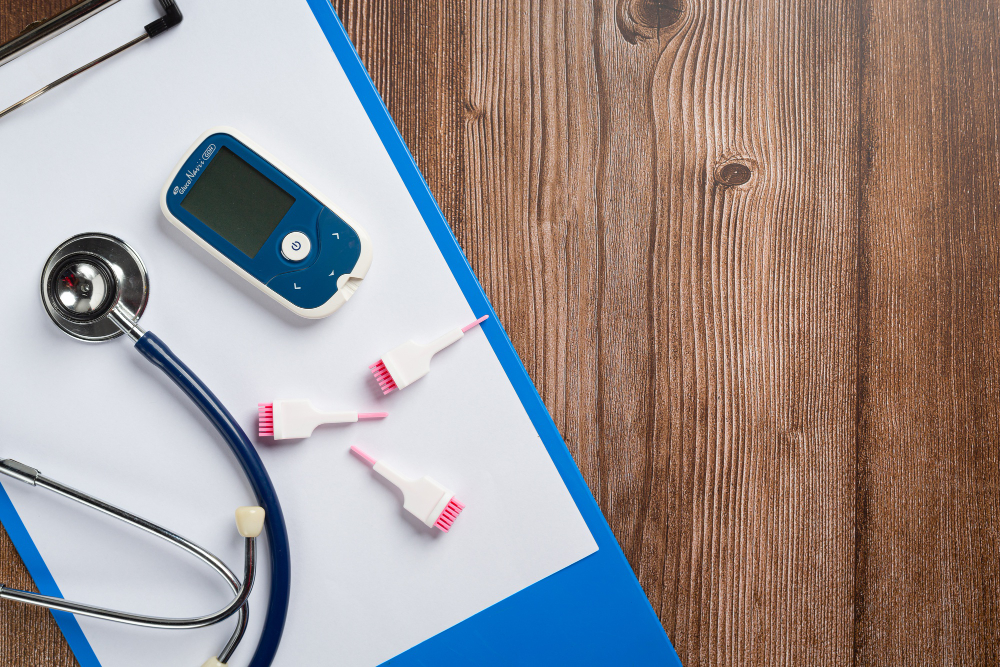
Diabetes Mellitus – HyperGlycemia, Causes, Symptoms, Diagnosis and Treatment
What is Diabetes Mellitus ?
Diabetes Mellitus is a group of metabolic disorder that caused by high amount of glucose present in the human blood for a prolonged time. Glucose is viral part of human life, almost 90% of the food we eat everyday has glucose but the glucose is the main cause of hyper glycemia (Diabetes Meletus). Not like other nutrients such as protein and fat, glucose gives instant energy to the human body. Each molecule of glucose can give 4 Kcal of energy to the human body. When we intake food, the carbohydrate in the food will break down to glucose and glucose will transfer to the bloodstream via villi in the intestine after digestion. As soon as blood gets the glucose, blood should be either demolish glucose to energy or should be stored in the human body in the name of glycogen with the help of Insulin hormone. If there is any interruption in energy conversation or storage function, then the glucose won’t let go out from blood, glucose will stay in bloodstream for a prolonged time. This condition is called hyperglycaemia (Diabetes Mellitus).
The main cause for hyperglycaemia or diabetes mellitus is the lack of insulin in our body. Any amount of glucose we intake, if we have a healthy body with the normal insulin level then the body will automatically control blood glucose level to the normal level with in a span of time. If there is any absence or shortage of insulin level will lead to diabetes.
What is insulin ?
Insulin is a hormone which produce by beta cells of pancreas which helps body to store glucose in the muscles and also it helps body to convert glucose to energy by entering glucose to the cell. If there is any shortage or absence of insulin in our body, our body will not control glucose from blood stream then the glucose level in blood remains high for a long time which leads to diabetes.
These are some causes of insulin deficiency.
- Any damage in pancreases
- Heavy smoking and Alcohol in take
- Usage of Drugs will damage pancreases
- Improper growth of pancreas
- Infections such as viral and bacterial infections.
- Insulin resistance
- Genetics or family history
- Pregnancy
- Obesity
- Lack of exercise
Types of Diabetes Mellitus :
Type 1 Diabetes:
The other name of type 1 diabetes is insulin dependent diabetes or juvenile diabetes mellitus. It is a chronic condition in which the pancreas is incapable of producing enough insulin or no production of insulin.
Cause of Type 1 Diabetes:
The exact cause of type 1 diabetes mellitus is unknown though, Genetics and viruses may be the known of cause type 1 diabetes in childhood and adolescence.
Treatment:
There is no permanent cure for type 1 diabetes. The person with type 1 diabetes may control blood glucose level to normal level with Insulin intake by mouth or by IV and It can be prevented by Proper exercise, diet and good life style.
Type 2 Diabetes:
Type 2 diabetes also known as Insulin resistance diabetes mellitus. It is a most common type of diabetes, around 95% of all diabetes patients have type 2 diabetes. It is a chronic condition in which the pancreas is not able to produce enough insulin or your cell become resistance to the insulin so body cells don’t respond to the action of insulin.
Cause of Type 1 Diabetes:
Type 2 diabetes usually occurs in middle aged and older people. The exact cause of the type 2 diabetes is unknown but genetics, age, overweight or obesity and environmental factors may play the major role in type 2 diabetes mellitus.
Treatment:
No permanent cure for type 2 diabetes. Daily insulin intake by mouth or Intravenous can control glucose level but you can prevent type 2 diabetes by regular exercise, proper diet, weight loss, health lifestyle and regular blood sugar monitoring may prevent Type 2 diabetes.
Gestational Diabetes:
This type of diabetes occurs during pregnancy. During pregnancy, mother body produce certain hormone for the baby’s growth, this hormone makes the cells more resistance to insulin.
The main cause of gestational diabetes is pregnancy. This type of diabetes can be treated with insulin intake, Weight loss, regular exercise and proper diet plan. Gestational diabetes may disappear after the labour.
Symptoms of Diabetes Mellitus
Diabetes symptoms may vary from person to person.
Most common symptoms are:
- Polydipsia – Excess intake of water due to excessive thirst.
- Polyurea – Human body produce high volume of urine due to excess intake of water.
- Polyphagia – Excessive intake of food due to increased appetite.
Other common symptoms are below
- Hunger and Fatigue
- Dry Mouth
- Frequent Urination
- Excessive Thirst
- Excessive Hunger
- Itchy Skin
- Blurred Vision
- Numbness In Arm and Fingers
- Weight Loss
- Nausea and Vomiting
- Nervousness and Anxious
- Pale Skin
- PCOD – Polycystic Ovarian Disease
Diagnosis:
Glucose can be diagnosed by different testing procedure. Oral Glucose Tolerance Test is the most common test procedure to check whether person is diabetic or not.
Different diagnosis method for diabetes
- Random Blood Glucose Test: A blood sample may take at a random time. The test can be carried out any time, Glucose level of 200mg/dl is the indication of highest level of diabetes.
- Fasting Blood Sugar Test: Before carry out this test, the patient should be advised to keep fasting over night and the test should be taken in the morning without eating anything from over night to the time the blood sample is taken. The normal level of fating glucose test is 100 mg/dL, 100 mg/dL to 125 mg/dL is the indication of prediabetes and Higher than 126 mg/dL is the confirmation that you have diabetes.
- Oral Glucose Tolerance Test: Patient will be advised to keep fasting overnight. The first blood sample will be taken after overnight fasting and the patient will be advised to drink liquid glucose or any sugary drink then the blood sample will be taken every half an hour periodically for the next 2 hours.
Oral Glucose Tolerance Test readings are below:
- Normal level: Less than 140 mg/dL
- Prediabetic: 140 to 199 mg/dL
- Diabetic: 200 mg/dL or above
Conclusion – Prevention is better than cure
Diabetes has no permanent cure. The only option is to control blood glucose level is to take insulin in the form of tablet or injection. All though we can prevent diabetes by doing regular exercise, diet plan, weight loss, avoid too much fat and sugar intake, regular insulin check-up and the healthy life style.
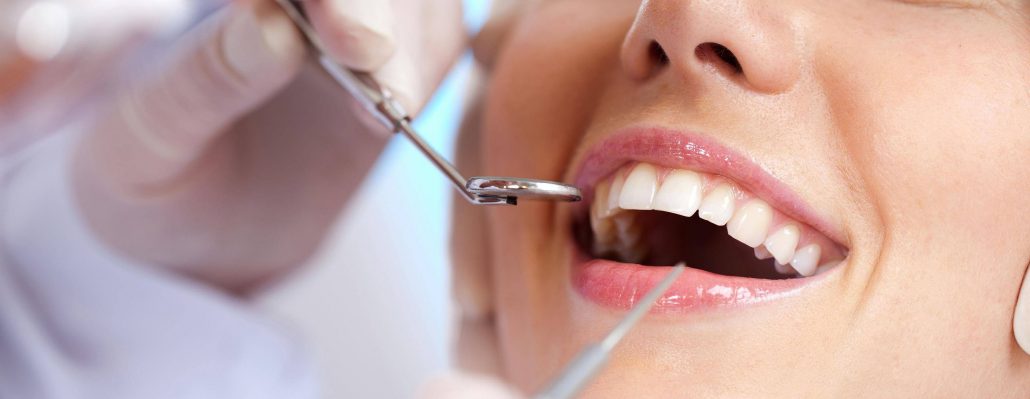
10 Most Common dental problems
1.Toothache
There is no specific cause of toothache. It can be caused due to several reasons. Some of them are cavities, irregular brushing, gingivitis, breaking of teeth, grinding of teeth, and many more. Taking a dentist’s is very necessary but until then you can rinse your mouth when you have a toothache or you have to apply clove oil to it. But these home remedies can not last forever. You have to go to the dentist to find out the actual problem of a toothache and get it treated. But it happens to everyone in their life and more than once. So it is the most common dental problem.

2. Stained tooth
When we see the aesthetic point of view, the color of your teeth is very important. Stain doesn’t always mean white teeth. The teeth are not white in the case of everyone. They are of different shades in different people. If you have yellow teeth you do not have to make extra efforts to get them whitened. But no matter what shade the teeth is, it always should be uniform in color. This is according to the aesthetic point of view. This can happen due to chewing tobacco or smoking or other foul habits. You can make it uniform in three different ways. First is you can go to the dentist where they can do scaling of your teeth and use a light to whiten them. Or the second is you can get a plastic plate and a whitening gel from the dentist or a pharmacy store and when it in your home. Or you can use whitening pastes and whitening rinses. But using whitening pastes and rinses can remove the stains only from the surface.
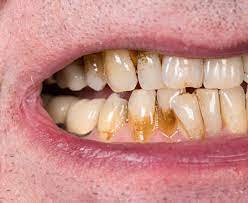
3. Cavities
Dental Cavities are considered as one of the most common problems. This has no particular age of occurrence. It can occur in kids and in adults too. Cavities are microbial infections that are characterized by the demineralization of the inorganic substances and distortion of the organic substances. The enamel or the top surface of your tooth is usually made up of organic and inorganic substances. When we eat food some of them get stuck in our teeth. Some bacteria are always present in our teeth. So these bacteria decompose the food particles in the presence of saliva and produce an acid. This acid can cause the wearing away or the loss of enamel. After the enamel, this carry proceeds further into the tooth. This can be treated by filling or root canal. If you don’t get your cavities checked then they may proceed so deep that you have to get the tooth extracted.
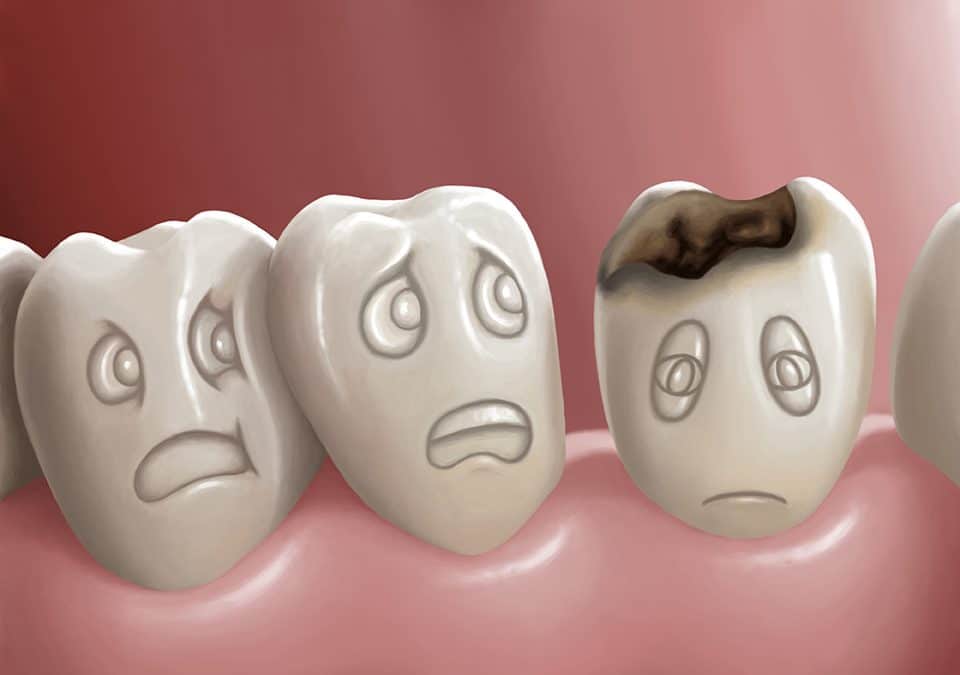
4. Chipped tooth
This always occurs due to trauma to the teeth in your daily life. Some people have weak teeth so facing a very little amount of pressure can lead to loss of a part of the tooth. This is not good from an aesthetic point of view. Also if the breakage of the tooth results in exposure of the nerves in the tooth. So it is necessary to get it corrected. The dentists correct it with a material called composite. They give it the shape of the old tooth and then show a self-curing light. There may be a slight difference in the shade of the tooth and the reconstruction. But that is hardly appreciated by most people.
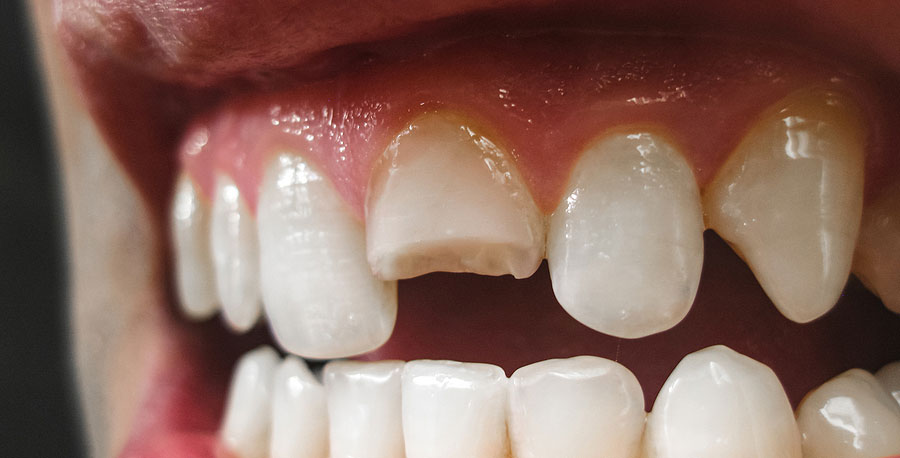
5. Impacted tooth
This is a tooth that never erupts or tries to erupt but it’s not possible. This is because of the ill position of the tooth. A tooth is developed from a tooth germ but because of some trauma or pressure, the teeth remain tilted or in a different position in which they cannot erupt normally. It is not a problem that can raise much concern but sometimes these teeth apply pressure or get stuck in another bone or soft tissue or any other surface of the oral cavity. If it doesn’t cause any pain or discomfort then the dentist will ask you to let it be. But it is causing pain the oral surgeon can get it out in no time.
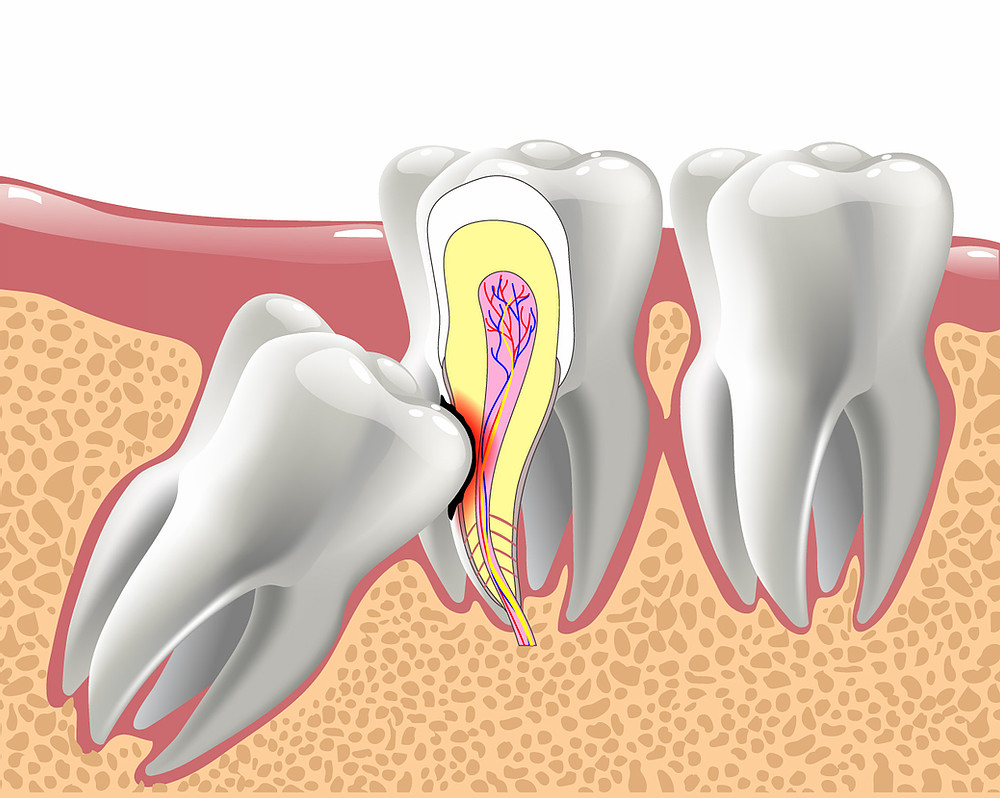
6. Sensitivity
It is one of the chief complaints that dentists get to hear from most of their patients. It can be an issue caused due to various reasons. The causes of teeth sensitivity are not specific. So it’s most important to find out the root cause of the sensitivity. So this can be cavities or worn-out enamel or it can be fillings or the of several problems in your teeth structure or exposed root. So once the problem is determined then you can easily get it treated by doing a root canal or filling or replacing the list tissues of the gum or other treatment of gums.

7. Hyperdontia (presence of many teeth)
How many teeth do you have? In the case of the milk teeth, the babies may have 20 teeth in a fully grown denture, and in the c of adults, there can be 28-32 teeth. Many people may have 28 teeth due to the failure in the eruption of the third molar. This is normal and not a factor of concern. But some people have more than 32 teeth. That is a factor of concern. This abnormality doesn’t occur itself. It occurs due to the presence of many syndromes like gardner’s syndrome or cleft palate.
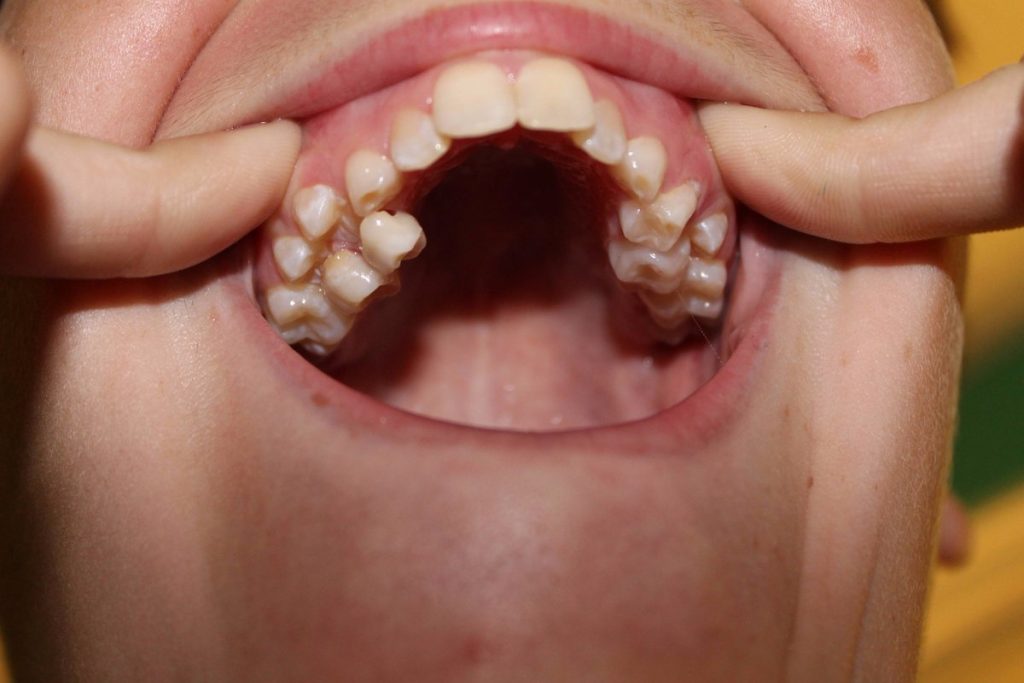
8. Cracked tooth
It can be caused due to trauma by hitting some objects or other. This can cause many other problems like sensitivity or toothache or bleeding of the tooth. This can be rectified mostly depending on how cracked the tooth is. If a part of the crown is absent then it can easily be restored but if most of the crown is absent then it cannot be further restored
.
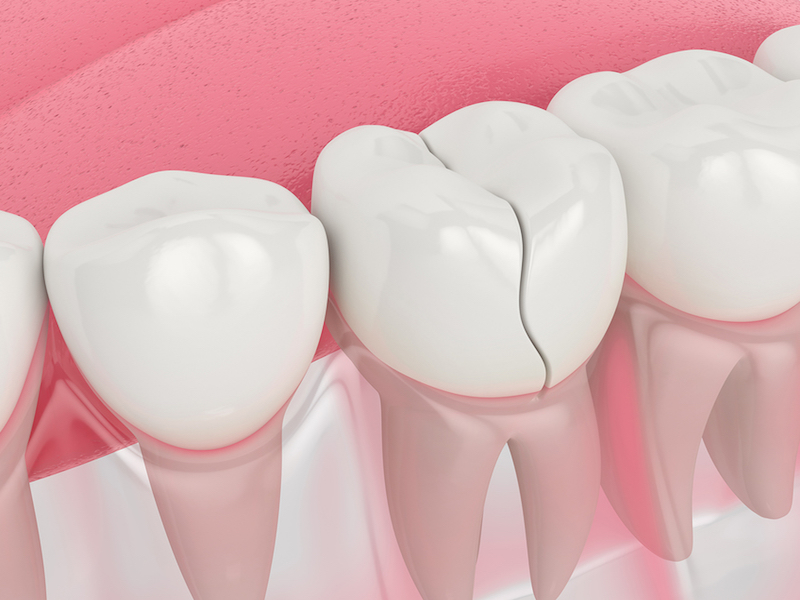
9. Malpositioned teeth
When the teeth are not the position they should be they do not look good orake the face look good. This can be corrected by taking an appointment from an orthodontist. They can be caused due to the delay in breaking of the primary teeth or malposition of the jaw or the tooth germ.
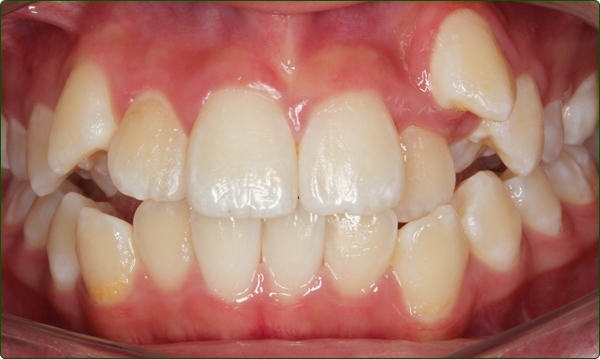
10. Gap between the teeth
This condition is known as diastema when it is present in the central incisors. This can be a host for the microbes to reside which may further cause cavities. This is also not good in tge aesthetic point of view. This can also be corrected by an orthodontist.
